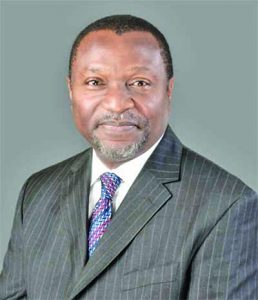
The Ministry of Budget and National Planning, Udoma Udo Udoma on Thursday disputed a recent report by the World Poverty Clock of the World Data Lab in Vienna, Austria which revealled the worsening poverty situation in Nigeria.
The Ministry maintained that the National Bureau of Statistics (NBS) remained the only statutory agency of government with the responsibility of producing Nigeria’s official statistics, including poverty estimates.
In a statement released on Thursday by his spokesman, Akpandem James, Udoma dismissed the report as unreliable, saying it was not based on any recent survey on Nigeria’s poverty level.
He said a review of the report showed it could not be relied upon as a factual indication of recent trends in Nigeria as its authors had claimed’ The Poverty Clock was an online analytical/visualization tool showing the number of people living in extreme poverty worldwide.
He also faulted the methodology adopted by Poverty Clock report, noting that in deriving its poverty estimates, the clock did not directly rely on household survey data as national statistical offices in most countries do.
“The models make assumptions on expected future changes in income, International Monetary Fund (IMF) medium-term growth forecasts and long-term projections and analysis developed by the Organization of Economic Cooperation and Development (OECD), all of which are significantly influenced by uncertainty,” Udoma said.
He added: “It is therefore pertinent to note that the World Poverty Clock is a model-based estimation of poverty, relying on projections and assumptions that cannot substitute for actual household survey approach which most countries adopt.
“This implies that it is not possible to conclude Nigerians’ poverty position until the NBS completes the NLSS, as no comprehensive field work has been done in Nigeria, and among Nigerian households, as is required according to standard international methodology.”
The publication had revealed that Nigeria, with 44.2 percent of its population living below ₦684.95 per day, has overtaken India as the country with the largest number of people living in poor conditions.
The publication added that India, which used to have about 218 million extremely poor people, now has about 71.4 million people (5.3 per cent of its population) living in extreme poverty.
The clock also showed that instead of being on track towards attaining the United Nation’s first sustainable Development Goal, poverty is rising in Nigeria while India was predicted to be able to escape poverty by the year 2030 despite having a population which is about seven times that of Nigeria in 2016.
It also identified Africa as the continent with the largest number of people living in extreme poverty, with Democratic Republic of Congo having 60.9 million people, Madagascar 20.6 million and South Sudan(16million).

BREAKING: EFCC Declares Former Kogi State Governor, Yahaya Bello, Wanted
Kano High Court Affirms Suspension of APC’s Abdullahi Ganduje Pending Hearing
Ninety-Five Million Nigerians Yet To Enrol For National Identification Number — NIMC
Federal Government Warns of High Flood-Risk Areas Across 31 States